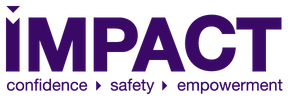
“Where are you really from?”
“Which one of your parents is stricter?”
“But your English is so good!”
“I bet you’re really good in bed.”
“How come you don’t have an accent?”
“You’re too Asian.”
“You’re not Asian enough.”
“You must be adopted.”
“Well, you don’t look gay…”
“Can I get a smile, mama?”
“No wonder you’re always angry, you are Puerto Rican!”
Microaggressions. Such a heavy word to me. Full of so much definition, assumption, sting, power dynamics, pain, academics, mind-reading, emotional labor, and more. Full of nothing that I want anything to do with, as a self-defense instructor or as a person. The above quotes (and more) are all things I’ve encountered, verbatim, since childhood. I still get some of these interactions to this day, as a 33-year-old adult mostly surrounded by people who teach some form of self-defense…so as much as I don’t want “microaggressions” to be “microaggressions”, these behaviors and ill-informed assumptions are still unfortunately alive and well.
I grew up in a vastly different environment from most of the people my age. I did not grow up with encouraging messages about boundaries or confidence. I didn’t grow up being told I was special. I didn’t have healthy relationships with most of my family members or friends. I didn’t get useful messages about being assertive or standing up for myself. In fact, it’s because of that, or rather in spite of that, that I’ve recently channeled more of my energy into paving the path for our students to navigate trespasses and understand the impacts of trauma on their lives.
Microaggressions– a word I wasn’t really introduced to or honestly even understood, until I joined IMPACT. When I was younger, my family members and I described these actions differently: it’s passive aggressive, it’s rude, it’s jerk-behavior, it’s ignorance, it’s othering, it’s racist, it’s bigotry, it’s painful, it’s in your face, it’s hidden, it’s everything but “micro”. These things are not small at all. In fact, they are things that I spend a lot of time in our classes encouraging others not to give power to at all.
Harvard Psychologist Chester M. Pierce originally coined the term in the 1970’s to describe acts of subtle, under-handed acts of discrimination he saw happening to African-American Black people. I take careful note of how much the use of that word has thrived on media platforms over the years and that if I had my way, would never have the power it’s been given. Now in our ever-expanding vocabulary, there are more words to describe these harmful acts of othering: micro-insults, micro-invalidations, macro-aggressions, and the list goes on.
In classes I’ve noticed an empowering, common theme among students and hear the collective sigh of relief when we come to a consensus as a group: “We don’t have to give these hurtful ignorances power over us as individuals. While we can’t change other people, WE CAN CHOOSE for ourselves the moments where we want to speak up against them, set limits with others, and use setting limits as a measuring tool for how trustworthy others are around us.” It’s up to us entirely, if we want to answer the question “Where are you really from?” with the ancestral origins or if we want to say “I’d rather not discuss that, thank you.” or “I don’t understand what you are asking me.” Or “Why are you asking me that?” It’s up to us to answer to what we wish to answer to, and leave the rest for someone else to take on. And we can and will do so willingly, when it comes to self-preservation and keeping our sanity in-tact.
In workshops where we teach about navigating microaggressions, the curriculum is focused on agency, choice, and self-reflection. Many of the reasons that we hesitate to set boundaries, or that we have difficulty navigating different situations, is because there may be a lot at stake with someone else and we fear how they may react. Oftentimes, we also decide it’s not worth it to go through that difficulty and just avoid it altogether. However, if we don’t set limits and speak up, nothing changes. Least of all, the current social climate that normalizes harmful questions. Sometimes, when having particularly charged conversations about things that may be personal or triggering to us, we may have an even harder time.
In our virtual workshops, we discuss the importance of self-awareness when we communicate, as well as awareness of others, and how microaggressions can make us feel uncomfortable or unsafe, and increase the challenges we have with others in terms of effective communication and finding common ground.
I once had a student compare microaggressions to “lingchi”, or “death by a thousand cuts.” Microaggressions, over time, can break us down and small insults and trespasses can become harmful to us and lead to burn-out, exhaustion, being worn down, and feeling ultimately powerless. I invite my students, and to anyone reading, to do whatever you feel you need to do to not let these cuts be cuts. Instead you can let them be missed aims, to fall back to the person casting these behaviors, and instead have them be the ones accountable for the damage that they cause.
